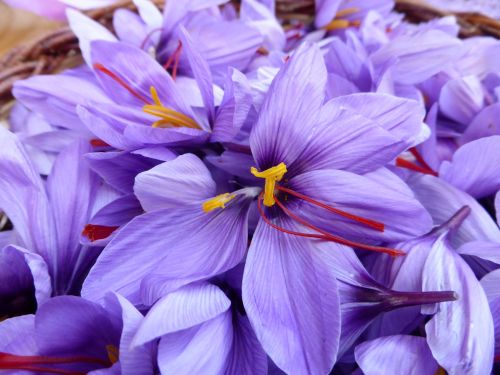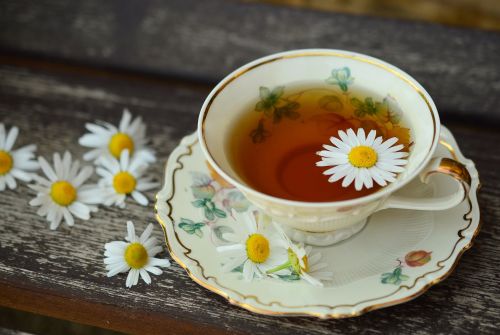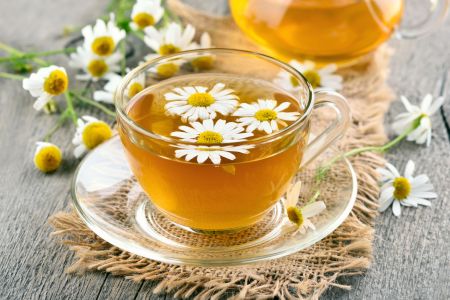This blog explores the intricate realm of sleep and its profound impact on our overall health and well-being. In recent years, our understanding of sleep has evolved significantly, revealing its role as a cornerstone of vitality, affecting everything from immune function to cognitive performance.
While sleep holds immense potential for rejuvenation, insomnia, a common sleep disorder characterised by difficulty falling asleep or maintaining restorative sleep, can disrupt this delicate balance. This blog explores the many causes of insomnia, from stress and poor sleeping habits to medical conditions and medication side effects. We'll also provide valuable insights into practical strategies, including sleep hygiene and home remedies, that can help individuals achieve better sleep quality and improve their overall quality of life.

Sleep is not merely a period of rest, but a cornerstone of our vitality.
In recent years, our understanding of the profound significance of sleep for our overall health and well-being has undergone a remarkable transformation. As scientific research continues to unravel the intricate connections between sleep and various facets of our physical and mental health, a growing awareness has emerged. We now recognize that sleep is not merely a period of rest, but a vital cornerstone of our vitality. From bolstering our immune system to enhancing cognitive function and emotional resilience, the importance of sleep is becoming increasingly clear. This awareness has prompted a shift in societal attitudes, encouraging people to prioritize and optimize their sleep habits, ultimately paving the way for a healthier, more vibrant life.
However, insomnia is a common sleep disorder characterized by difficulty falling asleep, staying asleep, or experiencing restorative sleep. There are various potential causes of insomnia, and addressing the underlying factors can help improve sleep quality. Let's take a closer look at common causes of insomnia.

Insomnia is a common disorder characterized by difficulty falling asleep, staying asleep, or experiencing restorative sleep.
Stress and Anxiety deprive our sleep
Persistent worries, stress, and racing thoughts can keep you awake at night by activating the body's stress response system. This leads to increased levels of cortisol and adrenaline, making it difficult to relax and fall asleep. Consequently, prolonged sleep deprivation due to chronic stress and anxiety can weaken the immune system, impair cognitive function, and contribute to a heightened risk of mood disorders like depression and anxiety. It's a cycle that underscores the critical importance of managing stress for both our mental and physical well-being.

Stress and anxiety deprive our sleep.
Poor sleep habits lead to permanent fatigue
Irregular sleep schedules, excessive screen time before bed, and a lack of bedtime routine can contribute to insomnia by disrupting the body's internal sleep-wake cycle. This disruption not only leads to difficulty falling asleep but can also result in fragmented and shallow sleep patterns, which, over time, can contribute to a host of health consequences such as impaired concentration, reduced immune function, and an increased risk of chronic conditions like obesity and cardiovascular disease.
Caffeine and alcohol certainly don't put you to sleep
Consuming caffeine, found in coffee, tea, and some sodas, and alcohol, especially in the hours leading up to bedtime, can disrupt sleep. These substances interfere with the body's ability to enter deeper sleep stages, resulting in disrupted and less restorative sleep. Over time, this sleep disturbance can contribute to heightened stress levels, compromised memory and cognitive function, and an increased susceptibility to mood disorders like anxiety and depression, emphasizing the long-term health consequences of these habits.

Caffeine and alcohol disrupt the transition to deeper stages of sleep, which is reflected in disturbed and less restorative sleep.
Certain medical conditions worsen the quality of sleep
Certain medical conditions like chronic pain, heartburn, asthma, and restless leg syndrome can interfere with sleep. Chronic pain can make it difficult to find a comfortable sleeping position, while heartburn and asthma symptoms may worsen when lying down. Restless leg syndrome causes uncomfortable sensations in the legs, making it challenging to stay asleep.
Some side effects of medications can be a reason for poorer sleep
Some medications, including certain antidepressants, stimulants, and medications for high blood pressure, can cause insomnia as a side effect. It's essential to discuss these effects with a healthcare provider, as they may adjust the medication or suggest strategies to manage sleep disturbances.
Balanced mental health is essential for restful sleep
Conditions like depression and anxiety can lead to sleep disturbances. Anxiety can cause racing thoughts and restlessness, making it hard to fall asleep, while depression can result in early morning awakenings and disrupted sleep patterns. Treating the underlying mental health condition often improves sleep quality.

Balanced mental health is essential for restful sleep.
Various hormonal changes in women can greatly disturb sleep
Hormonal fluctuations, such as those during menopause, pregnancy, or the menstrual cycle, can disrupt sleep. Hot flashes and night sweats during menopause can lead to frequent awakenings, while hormonal changes during pregnancy can result in discomfort and increased nighttime urination. Managing these symptoms and creating a comfortable sleep environment is key.
Many environmental factors can also disrupt sleep
Noise, light, temperature, and an uncomfortable mattress or pillow can significantly impact sleep quality. Reducing environmental disturbances by using blackout curtains, white noise machines, or adjusting room temperature can create a more conducive sleep environment. Additionally, investing in a comfortable mattress and pillows can improve overall sleep comfort.

Incorporate relaxing activities such as taking a warm bath before bedtime for better sleep.
By introducing so-called sleeping hygiene and a few additional measures, we can improve the quality of our sleep
Understanding these underlying factors and making appropriate lifestyle adjustments, people experiencing insomnia can take steps towards achieving better sleep and overall well-being. Let's take a closer look at some simple measures we can take to improve our sleep.

Calming herbal tea before bedtime is a good idea for better sleep.
To improve the quality of your sleep, consider introducing so-called sleep hygiene and a range of home remedies and simple measures to reduce insomnia. Start by establishing a consistent sleep routine, going to bed and waking up at the same time daily, and incorporating relaxing activities such as reading or taking a warm bath before bedtime. Ensure your sleep environment is conducive to rest by making your bedroom dark, quiet, and cool, and invest in a comfortable mattress and pillows. It's essential to limit screen time at least an hour before bed to avoid the sleep-disrupting effects of blue light emitted by electronic devices. Reducing stress and anxiety can significantly aid sleep, so practice relaxation techniques like deep breathing, meditation, or progressive muscle relaxation. Consider journaling to clear your mind before bedtime. Mind your diet by moderating caffeine intake, especially in the afternoon and evening, avoiding heavy or spicy meals close to bedtime, and being mindful of alcohol consumption. Regular physical activity is beneficial, but avoid vigorous exercise close to bedtime. If you need to nap, keep it short (20-30 minutes) and avoid late-afternoon naps. Herbal remedies like chamomile, lemon balm, or valerian root, as well as lavender essential oil in a diffuser or applied topically, can have calming effects. Reduce stress and anxiety related to constantly checking the time by limiting exposure to clocks, and consider mindfulness and cognitive-behavioural techniques for managing insomnia. Lastly, minimize liquid intake before bed to reduce nighttime awakenings, and steer clear of late-night work or stressful activities to allow your mind to unwind before sleep. These strategies collectively contribute to achieving more restful and consistent sleep.

Herbal remedies like essential oils can have calming effects.
If insomnia persists despite trying these home remedies, or if it significantly impacts your daily life and well-being, it's advisable to consult with a healthcare provider. They can help identify underlying causes and provide guidance on appropriate treatments, which may include behavioural therapies, prescription medications, or other interventions to address the specific factors contributing to your insomnia.
In summary, in this post, we explored the evolving understanding of the profound importance of sleep for overall health and well-being. We highlighted how sleep is no longer considered mere rest but a vital foundation for vitality, impacting aspects like the immune system, cognitive function, and emotional resilience. In the post, we delved into the common causes of insomnia, including stress, poor sleep habits, caffeine and alcohol consumption, medical conditions, medications, mental health, hormonal changes, and environmental factors. We discussed practical strategies for improving sleep quality and overall well-being, including sleep hygiene and home remedies. In the end, we emphasized the importance of consulting healthcare providers if insomnia persists and significantly affects daily life.
Try Viva la Gaia
At Viva la Gaia, we have prepared a nutritional supplement for you in the form of tasty gummies for better sleep and relaxation. In addition to vitamins and minerals with a beneficial effect on the nervous system and mood, we added three medicinal herbs to the formulation, lemon balm, chamomile and saffron, which enhance this effect in a natural way. For women, sleep problems can also be regulated with a nutritional supplement designed to alleviate problems during menopause. In addition to vitamins and minerals, a variety of carefully selected medicinal herbs are added to the tasty gummies. Vegan gummies contain evening primrose oil, sea buckthorn fruit extract, sage, red clover, cranberry and ginkgo biloba.
Categories
Gummies Turmeric and Ginger
- Natural source of antioxidants and anti-inflammatory substances.
- Natural botanical extracts traditionally used to support skin, joint and gut health.
- Satisfy your taste buds and reap the myriad benefits of turmeric and ginger.
- Suitable for vegans.
- Excellent peach taste, without artificial flavours and colours.
Indulge in a burst of flavour and wellness with gummies that contain 495 mg of turmeric and 250 mg of ginger per serving. Try it, whether you are men or woman.Oh, yes. Try it yourself. Content/Usage: 60 gummies/1 per day
Products
Celtic Sea Salt Fine Dry
- Popular finishing salt in cooking and baking!
- A unique, light grey colour and characteristic taste!
- Moist and crumbly texture!
- Containing more than 80 trace minerals!
- Traditionally harvested from the coastal regions of Brittany!
- Fine salt
Uncover Celtic mystery. "Sel de Guerande" - traditionally harvested salt from Brittany, France.Try our celtic sea salt...
Gummies Turmeric and Ginger
- Natural source of antioxidants and anti-inflammatory substances.
- Natural botanical extracts traditionally used to support skin, joint and gut health.
- Satisfy your taste buds and reap the myriad benefits of turmeric and ginger.
- Suitable for vegans.
- Excellent peach taste, without artificial flavours and colours.
Indulge in a burst of flavour and wellness with gummies that contain 495 mg of turmeric and 250 mg of ginger per serving. Try it, whether you are men or woman.Oh, yes. Try it yourself. Content/Usage: 60 gummies/1 per day
Hawaii Salt Alea Gold Red
- Premium quality salt!
- Unique and rich flavor!
- High in mineral content (from the volcanic soil)!
- For the final touch of culinary masterpieces!
- Only for true gourmets!
Discover how wild tastes like. Extracted from the coast of the Pacific Ocean and mixed with iron-rich volcanic red Alaea earth, which gives the salt its red colour.Try our mystical red clay salt...
Hawaii Salt Lava Black
- Premium quality salt!
- Unique and rich flavor!
- High in mineral content (from the volcanic soil)!
- For the final touch of culinary masterpieces!
- Only for true gourmets!
Our special salt from Hawaii. Extracted from the coast of the Pacific Ocean and mixed with pure activated carbon from lava rocks.Hm, is this the magical dust of Earth?
Himalayan Crystal Salt Pink Fine
- A unique and rich flavour - a result of the high mineral content!
- Distinctive pink colour due to the presence of iron, magnesium, and trace minerals!
- Precious salt used as a finishing salt!
- Popular in cooking and baking
- Fine salt
Bring sacredness into your home. The salt of the salts from Tibetan high plains!Try our Himalayan Crystal pink salt.
Himalayan Crystal Salt Pink Granulate
- A unique and rich flavour - a result of the high mineral content!
- Distinctive pink colour due to the presence of iron, magnesium, and trace minerals!
- Precious salt, used as a finishing salt!
- Popular in cooking and baking
- Granulated salt
Bring sacredness into your home. The salt of the salts from Tibetan high plains!Try our Himalayan Crystal pink salt.
Is there a difference between refined table salt and unrefined salt?
SCRUB STRAWBERRY
- Effective, moisturizing, cleaning, and nourishing
- An eco-friendly alternative to liquid body and hair care products!
- A natural and sustainable option for body care cosmetics!
- A travel-friendly option – no spill, no leak, less space needed!
- Long-lasting, money-saving option!
Only a true diva can dream up such a fabulous fruit whose seeds help fight cellulite.Discover pure prestige!




















